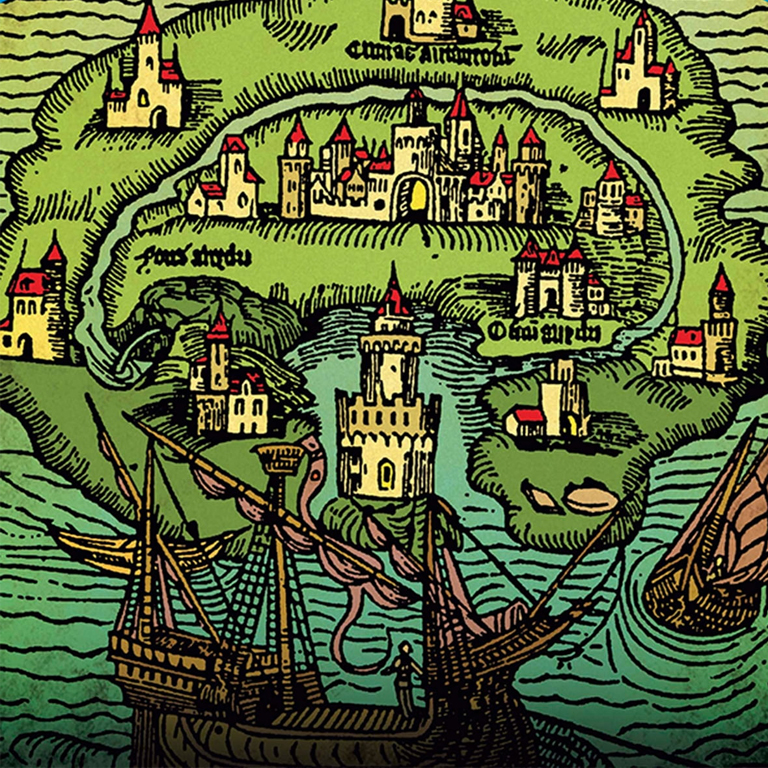- Instructor
- Constance Furey
- Days and Times
- W 3:10PM - 5:30PM
- Course Description
Utopia, a “good place” that is “no place,” was invented by Thomas More in 1516, as a described an ideal society on an island off the coast of South America, narrated by an invented European traveler. Utopia’s paradoxical mix of realism and fantasy has inspired extraordinary theoretical work, most of it motivated by the conviction that utopia is a modern and, crucially, secular expression of human creativity. Utopia is also, however, a religious genre, invented by a man who would become a Catholic martyr; deeply informed by Christian monasticism as well as apocalypticism; and conceived as Christian corporations funded European exploration and conquest in the Americas. The purpose of the course will be to better understand the relationship between religion and utopian imagination. Readings will include the theoretical work of Fredric Jameson and Ernst Bloch as well as utopian writings by More and female utopian authors including Aemilia Lanyer, Margaret Cavendish, and Christine de Pisan. Students will be encouraged to research utopian writings from their own areas of specialization, to expand our collaborative, comparative framework.
Utopian Religion

 The College of Arts
The College of Arts